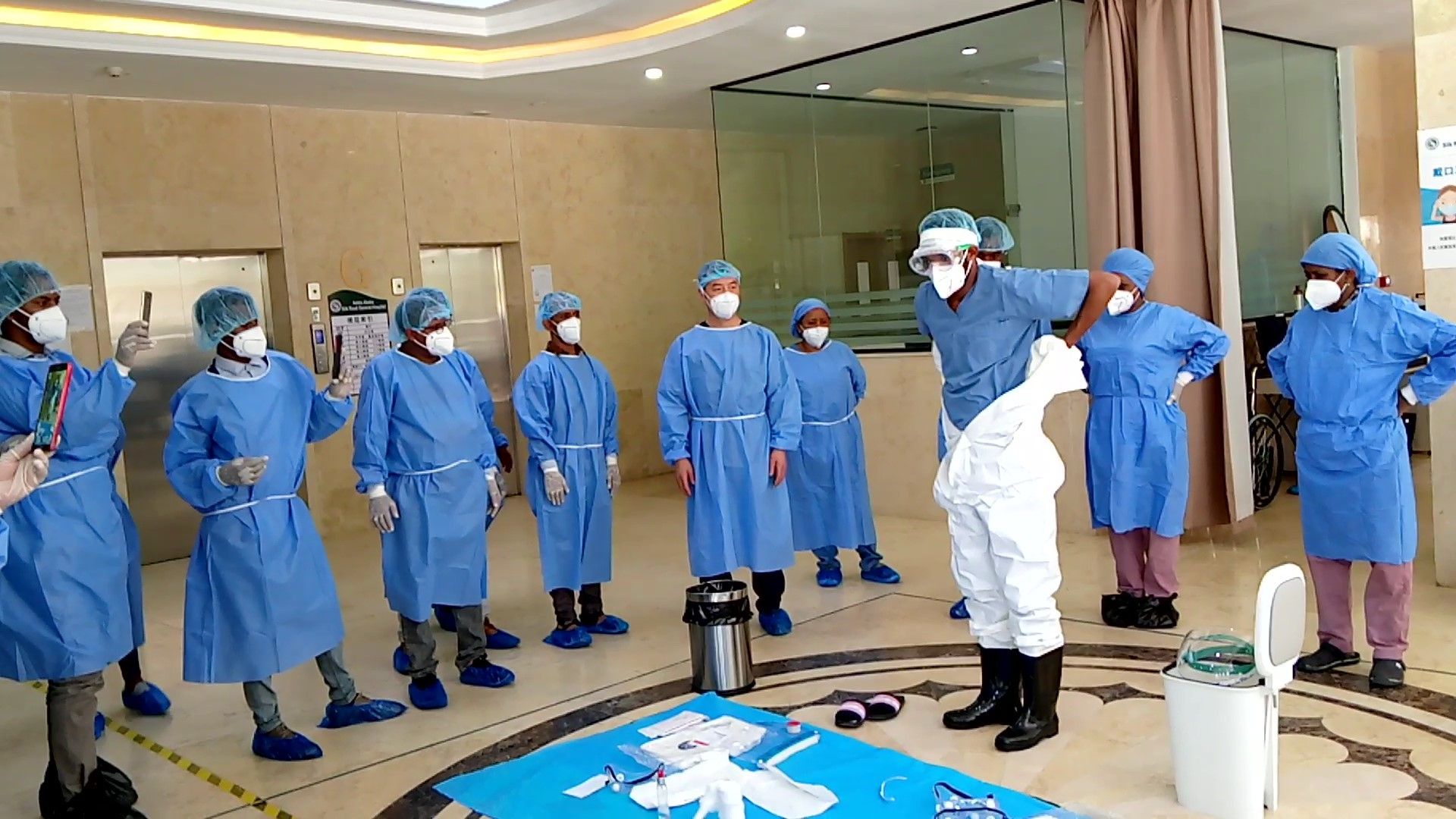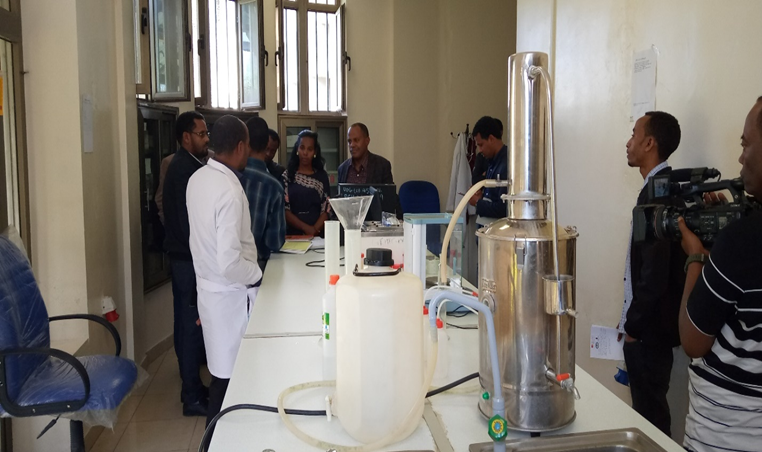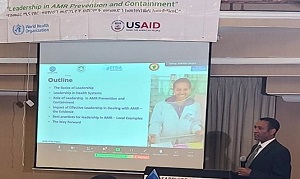Country Landscape and MTaPS’ Support
When Ethiopia announced its first case of COVID-19 in March 2020, personal protective equipment (PPE) shortages and health service interruptions against a backdrop of political instability made the country particularly vulnerable to the virus. Health facilities were not equipped to handle an influx of COVID-19 patients, and workers were not sufficiently trained on COVID-19-specific infection prevention and control (IPC)—including how to use PPE.
Based on USAID MTaPS’ ongoing multisectoral coordination and IPC work in the country to contain antimicrobial resistance as part of the Global Health Security Agenda, the program was tasked to support COVID-19-related IPC to help manage COVID-19 patients and to keep health care workers safe. From the get-go, MTaPS supported the Ministry of Health to build collaboration across the many players and coordinate the national-, county-, and facility-level efforts to improve IPC. As a member of the national COVID-19 task force and task force subcommittees for case management, IPC, and capacity building, MTaPS provided technical expertise to build IPC capacity at health facilities and isolation centers. The program also coordinated with partners such as the Ethiopian Public Health Institute and public health emergency operating centers in Addis Ababa and the Amhara, Oromia, and Somali regions to leverage their expertise and maximize technical assistance.
Indicators as of September 2023

2,481
Number of workers trained on
COVID-19-related IPC and/or WASH

535
Number of health facilities supported for IPC and/or WASH for COVID-19

Training participants visit Silk Road Hospital (a COVID-19 patient treatment center). Photo credit: MTaPS Ethiopia
Select Highlights
Infection Prevention and Control
- Developed COVID-19 IPC training package; standard operating procedures (SOPs); guidelines; and job aids, covering areas ranging from patient triage, rational PPE use, and administrative and environmental controls to specialized SOPs for airports and other points-of-entry screening, management of ill travelers, workplace protocols, and hotels serving as isolation centers
- Performed rapid assessments and sensitized staff on IPC at 535 health facilities and isolation centers with targeted packages of training materials, SOPs, and checklists
- Conducted training of trainers, cascading skills and knowledge on COVID-19 IPC to nearly 2,500 health care workers at public hospitals, health centers, and isolation facilities
- Improved IPC in 334 health facilities to be compliant with COVID-19 IPC guidelines/SOPs and mentored staff to establish systems for continuous quality improvement
- Supported the development of local production of alcohol-based hand rubs—a key IPC commodity—in select hospitals, leveraging WHO’s guidance

Procedure for alcohol-based hand rub production, developed and disseminated by MTaPS, enabled more than 140 hospitals to produce their own hand sanitizer when COVID-19 broke out
Photo credit: MTaPS Ethiopia
Partners include:
- Ministry of Health
- Ethiopian Public Health Institute


